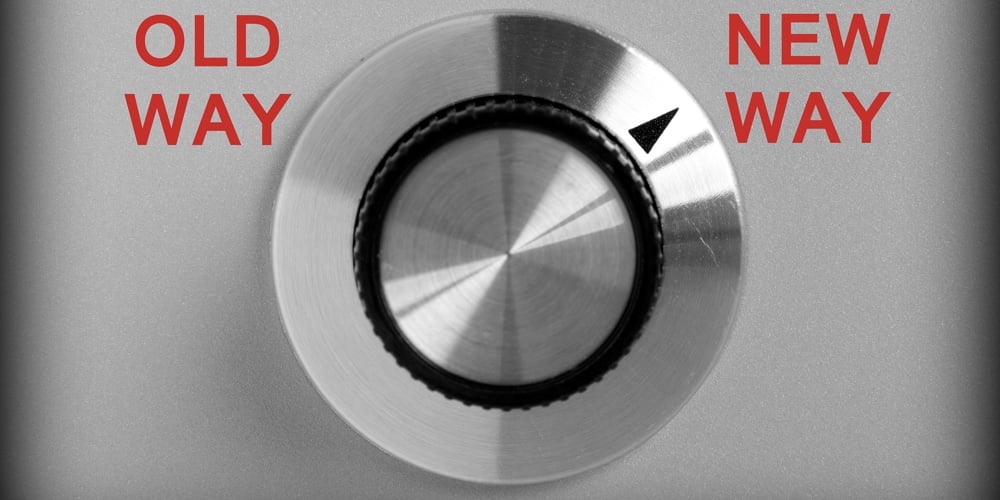When it is time to pivot and where credit unions can position themselves for continued relevance

The world is learning a lot about pivoting recently. COVID-19 has required significant shifts in almost every aspect of life. We have quickly learned how to move events and entertainment online, although these are nowhere near a replacement for the real thing. Virtual conferences and summits are being brought to life quickly and the government is scrambling to get relief money to industry and individual consumers. Credit unions are no exception to this global pivot, as we have had to figure out a lot of things on short notice: everything from remote work to consumer relief to cybersecurity to financial education and marketing needs to be navigated. Change sometimes happens because of external events, and I have written in the past about how to move through change processes. It is inevitable that some of the changes being made in the way we operate will be permanent, or at least change our procedures and practices significantly on an ongoing basis. COVID-19 recovery will provide an opportunity to evaluate and revisit values and strategic priorities.
Unrelated to COVID-19, recent months have also been a time of personal pivot for me. The credit union industry has been good to me. My eight years in the industry have been a time of tremendous growth and learning. I grew from a role in marketing to leading a small credit union, one that did significant and important work as a CDFI in leveling the playing field toward economic equity. I have enjoyed getting to know industry leaders that think deeply and passionately about how to serve their communities and have seen incredible examples of credit unions that lead the way in access. I have had the opportunity to share my voice and perspective with local trade associations, at industry events, with regulators, and through writing CUInsight articles for the past four years. Finally, I had to wrestle through merger decisions, a challenge faced by many small credit union CEOs. I am grateful for all the lessons this industry has taught me and the ways it has helped me grow.
During this time of transition, it is clear we also still have work to do, specifically in the diversity, equity, and inclusion (DEI) arena. I am glad to see the conversation beginning on a higher level in the credit union movement. I was thrilled to see CUNA adopt DEI as a cooperative principle. I was excited to be an attendee at the NCUA’s first ever Diversity Equity and Inclusion Summit in November 2019. These actions are an important start. However, one of the critical lessons of COVID-19 is that inequity has real and serious consequences. We are beginning to see racial disparities in the impact of COVID-19, from economic to health impacts. The societal and structural reasons are beyond the scope of this article, but these racial disparities are symptomatic of larger problems. Credit unions have begun efforts toward diversity work, and some are further than others. We should be encouraged that these issues are within our purview, but diversity work is never done. Diversity, equity and inclusion work takes self-examination, humility and willingness to listen, as well as an ability to work through conflict as we hear voices and perspectives that are uncomfortable to the dominant voice. Serving underserved communities is not DEI work, although it can often be the RESULT of sincere DEI efforts. When our outreach to underserved communities happens in order to correct racial and systemic inequities, that is when we know we have begun to engage in DEI efforts. To do that well also takes diverse internal leadership representation. There are good business reasons to serve underserved communities, many of which make financial sense and do provide relief for those that don’t have access to products and services elsewhere. We just need to be careful not to confuse those other motives with DEI work when it is not always that. Our relevance depends on not being blind to issues that on the surface may appear to be beyond the scope of financial services. These issues are very tangible to many who use our services.
As for me, I am taking a pause to explore some of these issues more deeply from an academic perspective. I will not be directly employed by a credit union in the immediate future, although I hope to remain tangentially involved. (I can be reached for partnership opportunities through Your Credit Union Partner, a credit union consultancy to which I also owe much of my success). Thank you to so many of you for what you have taught me over the past few years and continue to keep the credit union mission of ‘people helping people’ at the forefront. It is our identity as an industry and remaining true to our identity is what keeps us authentic and relevant.





